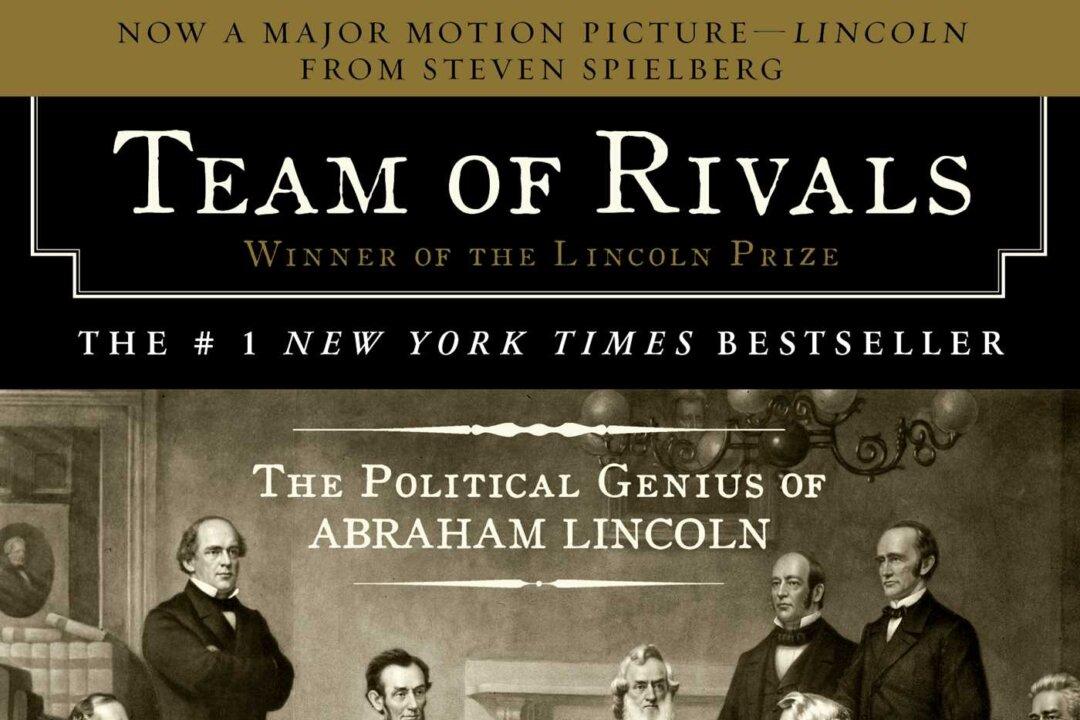Although a hefty read at 916 pages, “Team of Rivals: The Political Genius of Abraham Lincoln” is not scholarly. Yet the size of this prize-winning book conveys the weight of Abraham Lincoln’s cabinet choices, as well as the strategic mind that eventually garnered his rivals’ respect.
On the eve of the Civil War, the 16th president, who seemingly came out of obscurity to win the election over much more seasoned contenders, “made the unprecedented decision to incorporate his eminent rivals into his political family, the cabinet,” wrote Pulitzer Prize-winning author Doris Kearns Goodwin. Lincoln’s choices of 1860 Republican nominees—New York Sen. William H. Seward, Ohio Gov. Salmon P. Chase, and Missouri judge and “distinguished elder statesman” Edward Bates for the coveted positions of secretary of state, secretary of the treasury, and attorney general, respectively—“was evidence of a profound self-confidence and a first indication of what would prove to others a most unexpected greatness,” wrote Goodwin in the book’s introduction.





